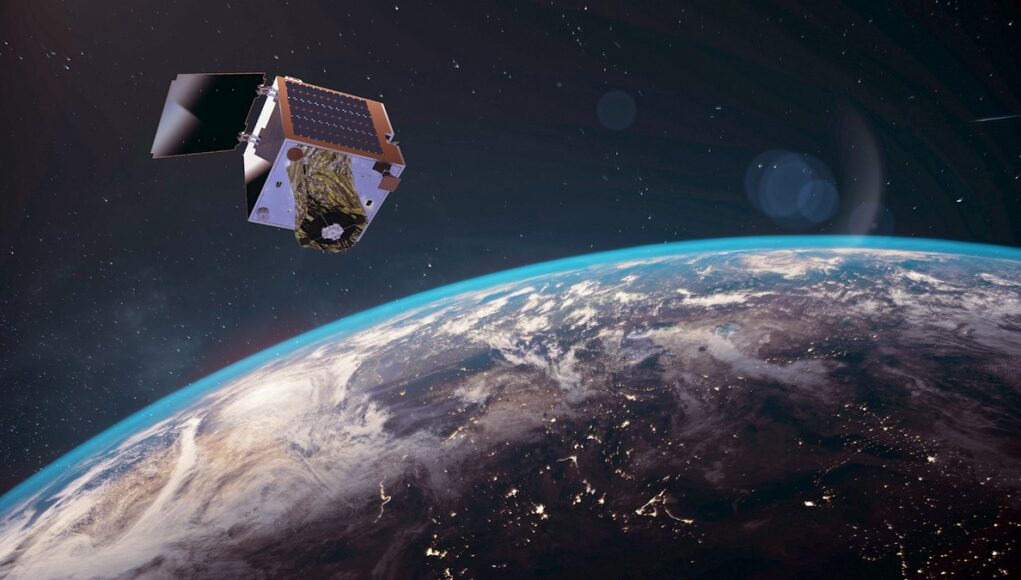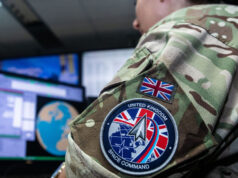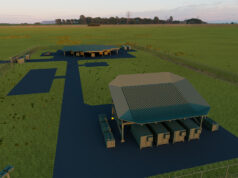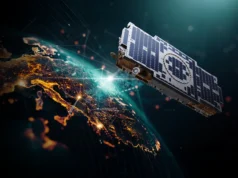According to a press release from the Ministry of Defence, the UK Space Command has successfully launched its first military satellite, Tyche. This marks a milestone in the country’s effort to boost its space-based Intelligence, Surveillance, and Reconnaissance (ISR) capabilities.
Tyche, which was launched from Vandenberg Space Force Base in California aboard a SpaceX Falcon 9 rocket, is the first satellite to be fully owned by the Ministry of Defence.
The satellite, comparable in size to a washing machine, will operate in Low Earth Orbit and is expected to provide critical imagery and intelligence in support of UK Armed Forces over its five-year lifespan.
CORRECTION – 19/08/2024: We would like to address a concern raised regarding this article about the launch of the Tyche satellite. While the press release from the Ministry of Defence states that “Tyche is the first satellite to be fully owned by the Ministry of Defence”, it is important to clarify that Tyche is not the Ministry of Defence’s (MOD) first satellite. The MOD has previously operated satellites for various military and governmental purposes. However, Tyche represents a significant milestone as it is the first satellite fully owned by the Ministry of Defence and operated under the direct command of UK Space Command.
We appreciate the feedback and strive to ensure accuracy and clarity in all our communications.
The launch of Tyche is part of a broader initiative under the Ministry of Defence’s space-based ISR programme, which aims to develop a constellation of satellites and supporting ground systems by 2031.
These satellites are designed not only to enhance military operations but also to assist with other government tasks, such as natural disaster monitoring, environmental tracking, and mapping.
Minister for Defence Procurement and Industry, Maria Eagle, highlighted the importance of the satellite, stating, “Tyche will provide essential intelligence for military operations as well as supporting wider tasks across government.”
UK Space Commander, Major General Paul Tedman, praised the collaborative effort that led to the successful launch, saying, “This is a fabulous day for UK space. The successful launch of Tyche has shown that UK Space Command, and its essential partners across defence and industry, can rapidly take a concept through to the delivery of a satellite capability on orbit.”
He also made it clear that Tyche represents the first of many ISR satellites to be launched in the coming years.
The satellite was designed and built in the UK through a £22 million contract awarded by Defence Equipment & Support (DE&S) to Surrey Satellites Technology Limited (SSTL).
Paul Russell, DE&S Space Team Leader, expressed pride in the project, stating, “To see Tyche – the first of a new generation of UK military capabilities – delivered into orbit is an incredibly proud moment and a tribute to everyone’s commitment to this key project.”











“First Satellite to be fully owned by the MoD”
??
Surely the earlier Skynet constellation were MoD owned, when 1001SU existed, before the PFI from around 2004 on when newer ones were provided by the contractor.
Unless it means ISR only satellites being fully MoD owned.
I think it means it’s the first in the ISTARI constellation and it’s the first with UK Space Command. SKYNET 5 is a PFI but the MOD previously paid for but did not own CARBONITE 2 and TOPSAT.
It’s absolutely amazing that the UK can build and launch a 90cm resolution satellite with a 5km field of view for just £22 million. I can’t wait to see what the rest of the ISTARI constellation will do and for just £1 billion.
Add in the ability to launch satellites of this size rapidly from Saxaford and Sutherland as well as the massive potential of the One Web constellation and the UK will be perhaps the third greatest space power by the end of this decade.
As long as Labour do not downgrade it! Agree, having our own space based ISR is long overdue.
“UK will be perhaps the third greatest space power by the end of this decade.”
After USA, EU, Russia, China, India etc?
USA and China maybe India
, Russia is falling off a cliff EU can’t launch satellites.
Oh yeah
You better get your finger out
China by 2030 will have at least
Have 30, 000 in orbit
Not to mention India
Careful, if it vaguely resembles a washing machine a Russian conscript might try to steal it
😂
To save on money they used a washer machine chassis. The glass door can help protect the camera from debris and put the camera in the drum. They can use the spin cycle to help with inertial rotation.
There is mention of signals intelligence being part of the ISTARI constellation, does anyone know anything about that? is it perhaps building in the low weight antenna SSTL developing for SAR missions?
Do you have a link to that, please?
I can’t find it anymore, Jane’s has mention of potential RF packages on Juno but they appear to be for satellite to satellite communication in orbit rather than monitoring ground based communications.
That being said monitoring satellite to satellite communication is probably now vital and an increasing blind spot in the NSA arsenal.
As with under sea cables which were a big blind spot before that the UK intelligence community helped to tap them. GCHQ is often highly motivated to fill in any gaps the NSA has be they legal or technical so it may be ISTARI and specially Juno are involved in such missions.
Intriguing….🤔
The only thing I found was the following sentence in the 2022 Defence Space Strategy:
I suppose intelligence sources aren’t going to be widely briefed.
On a Space x falcon 9 umh who owns that ? not being a conspiracy theorist here , but threatening a certain Mr Musk may mean looking else where for another lift vehicle hope the MOD have a word with Mr Rowley .
We won’t need launching more of those solitary confinement satellites for espionage purposes if only western,and especially British and German social security services system had been changed. We need to enforce total ban on illegal immigration and passports and British nationality of those juden Indians and Paquistaní several generations- born British Empire government and Admiralty functionaries have to be withdrawn and their physical person’s expelled from the country of residence. CIA PENTAGON BRITISH ADMIRALTY and PREMIERSHIP and HOME OFFICE have been plagued by those Kamala Harris teeters from Africa, Middle East and the Caribbean who claimed to be born in Britain,yet working,even like Prince Harry and his wife, against the interest of the rebirth of the same British Empire in Ukraine or elsewhere.
I wait with interest for replies to this post.